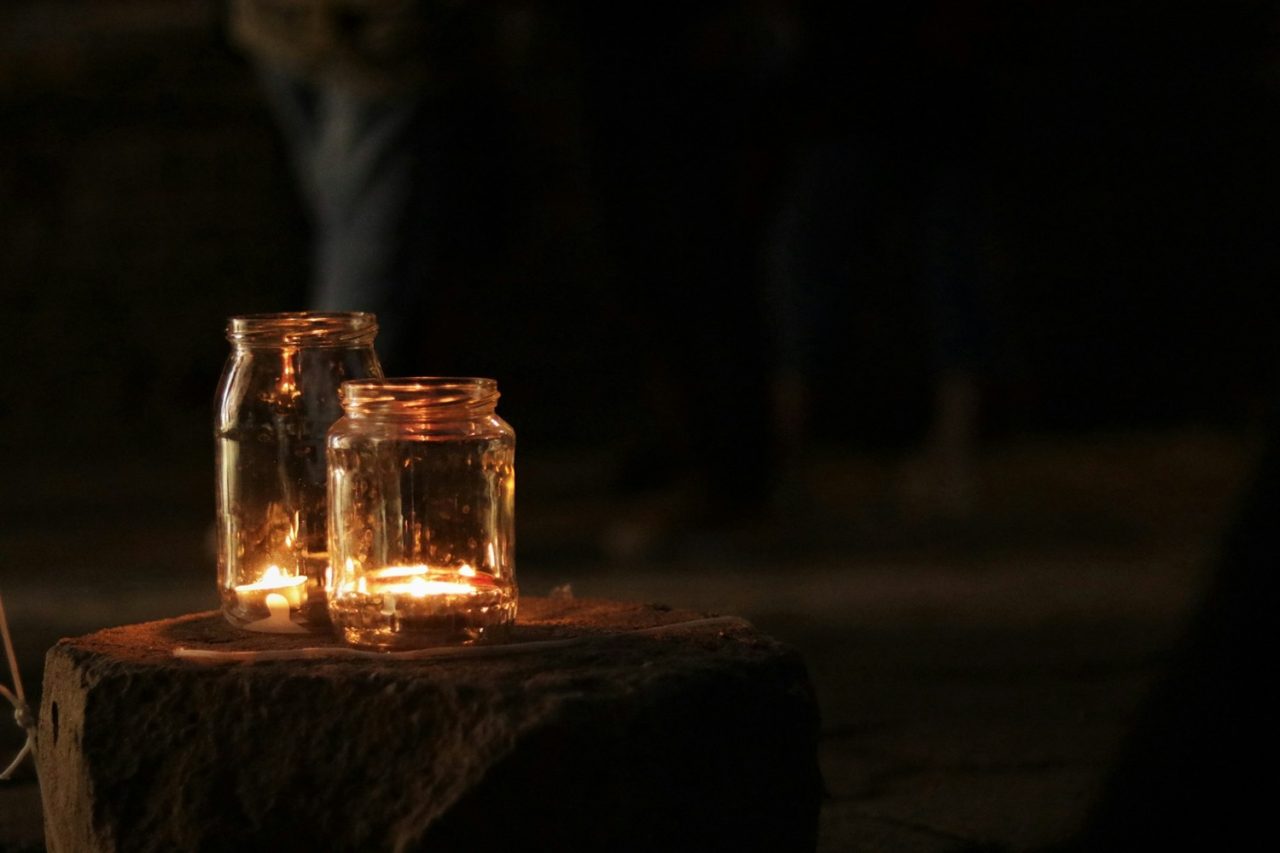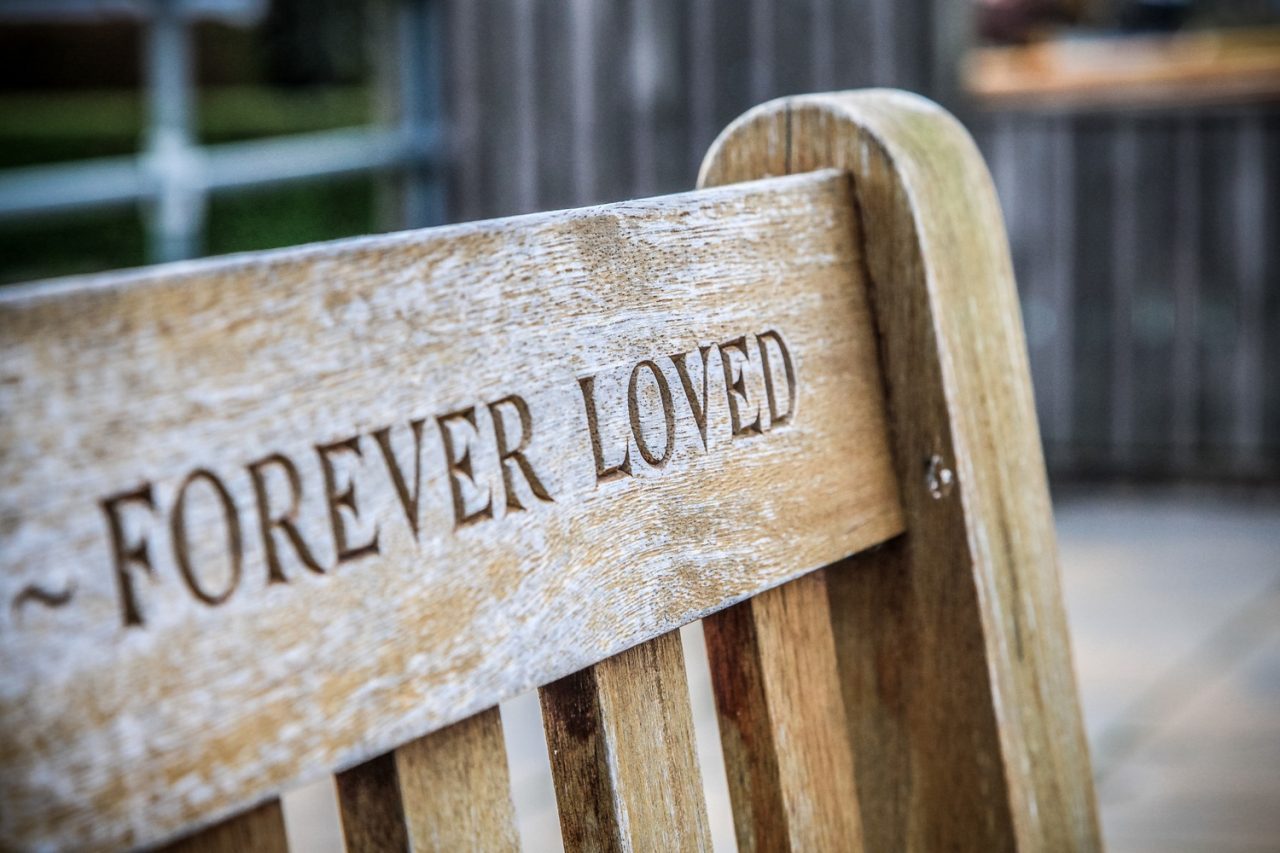
Saying goodbye to a beloved grandad is never easy. Whether he was a gentle storyteller, a steady hand through life’s ups and downs or the heart of the family, the loss leaves a space that words alone struggle to fill. But poetry has a way of capturing what we feel when ordinary speech falls short. It can offer comfort, honour memories and bring everyone together in quiet reflection.
If you’re planning a funeral or memorial service and looking for a meaningful way to pay tribute, here are seven touching memorial poems for grandad that may help you find the right words – including classic funeral poems, uplifting verses and heartfelt personal reflections.
1. His Journey’s Just Begun – Ellen Brenneman
This comforting poem offers a gentle view of death as a new beginning, not an end. Its soft reassurance makes it a popular choice for those wanting to express hope and peace.
Don’t think of him as gone away
his journey’s just begun,
life holds so many facets
this earth is only one.
Just think of him as resting
from the sorrows and the tears
in a place of warmth and comfort
where there are no days and years.
Think how he must be wishing
that you could know today
how nothing but your sadness
can really go away.
And think of him as living
in the hearts of those he touched…
for nothing loved is ever lost
And he was loved so much.
2. Do Not Stand at My Grave and Weep – Mary Elizabeth Frye
One of the most well-known funeral poems, it encourages us to look for signs of our loved one in the world around us. A powerful way to express enduring presence.
Do not stand at my grave and weep
I am not there. I do not sleep.
I am a thousand winds that blow.
I am the diamond glints on snow.
I am the sunlight on ripened grain.
I am the gentle autumn rain.
When you awaken in the morning’s hush
I am the swift uplifting rush
Of quiet birds in circled flight.
I am the soft stars that shine at night.
Do not stand at my grave and cry;
I am not there. I did not die.
3. Miss Me But Let Me Go – Christina Rossetti
This short, simple poem is ideal for those who wish to keep the tone gentle and accepting. It speaks of love without clinging, of remembering without sorrow.
When I come to the end of the road
And the sun has set for me
I want no rites in a gloom filled room
Why cry for a soul set free?
Miss me a little, but not for long
And not with your head bowed low
Remember the love that once we shared
Miss me, but let me go.
For this is a journey we all must take
And each must go alone.
It’s all part of the master plan
A step on the road to home.
When you are lonely and sick at heart
Go to the friends we know.
Laugh at all the things we used to do
Miss me, but let me go.
4. My Grandfather – Victoria L. Payne
A modern poem with a nostalgic feel, this piece – adapted from Payne’s original, My Grandmother – honours a grandfather’s wisdom, strength and steady love.
In my rose garden of memories,
I see you standing there,
An angel in disguise,
Who taught me how to care.
I long to hear your voice
for real – not in my dreams.
I am missing you so much these days.
How empty my world seems.
People say time heals all wounds,
that someday the pain will subside,
but grandad, I can tell you
I think they must have lied.
The emptiness I am feeling now
is strong and I am weak.
These days go by without you,
so dreary and so bleak.
In my rose garden of memories
I know you’ll always be,
for though you’re gone from this mortal world,
in my heart you’ll always be.
5. Death Is Nothing at All – Canon Henry Scott-Holland
With its calm and familiar tone, this poem speaks of the thin line between life and death. It can bring comfort to those who believe love transcends loss.
Death is nothing at all.
I have only slipped away to the next room.
I am I and you are you.
Whatever we were to each other,
That, we still are.
Call me by my old familiar name.
Speak to me in the easy way
which you always used.
Put no difference into your tone.
Wear no forced air of solemnity or sorrow.
Laugh as we always laughed
at the little jokes we enjoyed together.
Play, smile, think of me. Pray for me.
Let my name be ever the household word
that it always was.
Let it be spoken without effect.
Without the trace of a shadow on it.
Life means all that it ever meant.
It is the same that it ever was.
There is absolute unbroken continuity.
Why should I be out of mind
because I am out of sight?
I am but waiting for you.
For an interval.
Somewhere. Very near.
Just around the corner.
All is well.
6. You’ll Never Walk Alone – Rodgers & Hammerstein (excerpt)
Though originally written for the stage, the closing lines of this iconic song are often read as poetry at funerals. It speaks of courage and connection through grief.
When you walk through the storm
Hold your head up high
And don’t be afraid of the dark
At the end of the storm
There’s a golden sky
And the sweet silver song of the lark.
Walk on, through the wind
Walk on, through the rain
Though your dreams be tossed and blown
Walk on, walk on, with hope in your heart
And you’ll never walk alone
You’ll never walk alone.
Walk on, walk on, with hope in your heart
And you’ll never walk alone
You’ll never walk alone.
7. Our Grandad – Personal or custom poem
Sometimes the most powerful tribute is one written by a family member. Even a short poem from the heart can be incredibly moving, full of personal touches and memories that no one else could capture.
Tips for reading a funeral poem

- Take your time – speaking slowly helps everyone absorb the words
- Practise reading your memorial poem for grandad a few times beforehand
- Don’t worry about getting emotional – it’s a natural part of grieving
- If possible, bring a printed copy and mark any pauses or emphasis
Support from Jamieson Funeral Directors
Choosing a poem for your grandad’s funeral is a personal and meaningful way to say goodbye. Whether you go with a classic, a lesser-known gem or something written just for him, it’s a chance to honour who he was and what he meant to you.
At Jamieson Funeral Directors in Bristol, we understand how powerful words can be when saying goodbye. While choosing a poem is a personal decision, we’re here to support you with care and compassion as you plan a fitting farewell for your grandad. Whether you’re arranging a funeral or thinking ahead, our experienced team in Bristol is here to guide you every step of the way.
Contact us at directors@jamiesonfuneraldirectors.co.uk or call 0117 956 4796.
Related FAQs
- 7 Touching Memorial Poems for Grandad’s FuneralSaying goodbye to a beloved grandad is never easy. Whether he was a gentle storyteller, a steady hand through life’s ups and downs or the heart of the family, the… Read more: 7 Touching Memorial Poems for Grandad’s Funeral
- Can You Attend a Direct Cremation?Direct cremation has grown in popularity in recent years, especially for those looking for a simpler, more cost-effective alternative to a traditional funeral. With no formal service, no procession and… Read more: Can You Attend a Direct Cremation?
- 25 Memorial Plaque Ideas to Honour a Loved OneChoosing a memorial plaque is a tender and significant part of remembering someone you love. Whether it’s placed beside a grave, in a peaceful garden or on a favourite bench,… Read more: 25 Memorial Plaque Ideas to Honour a Loved One

Direct cremation has grown in popularity in recent years, especially for those looking for a simpler, more cost-effective alternative to a traditional funeral. With no formal service, no procession and often no attendees present, it naturally raises questions – particularly for those who still want to say goodbye in person.
“Can you attend a direct cremation” is one of the most common queries. In this article, we’ll explain how direct cremation works, whether attendance is possible and what options are available to make the farewell meaningful.
What is a direct cremation?
A direct cremation is a straightforward cremation that takes place without a funeral service, ceremony or mourners present. The body is collected, cared for by the funeral director, and then taken to the crematorium for cremation. It typically happens at a time chosen by the crematorium, without family or friends in attendance.
This option removes many of the traditional elements of a funeral, which is why it’s often chosen for its simplicity, privacy and lower cost. It allows loved ones to arrange a separate tribute at a time and place that feels right for them.
Can you attend a direct cremation?
By definition, a direct cremation is usually unattended – meaning that family and friends are not present at the crematorium when the cremation takes place. This is one of the key ways it differs from a traditional cremation with a service.
However, attendance may be possible in certain cases, depending on your chosen funeral director and crematorium. At Jamieson Funeral Directors, we understand that some families may still wish to be present for a quiet moment of farewell. While a direct cremation typically does not include a service, we will always do our best to accommodate any specific wishes where possible.
In some cases, a small number of family members may be able to attend the committal or witness the coffin being placed into the chapel. This tends to be very simple and informal, but for many, it provides much-needed closure.
Because every crematorium has different policies and schedules, the best way to explore your options is to speak to us directly. We’re here to support you and can guide you through what’s possible based on your preferences and any budget considerations.
Alternatives if you can’t attend
If an attended direct cremation isn’t possible, there are still many meaningful ways to honour your loved one:
- Hold a memorial service or celebration of life at a later date, in a location that suits the family. This can be as formal or as informal as you wish.
- Create a quiet moment of reflection at home, with candles, music or a reading that meant something to the person you’ve lost.
- Scatter or inter the ashes with a private gathering of close family and friends.
- Write a letter or poem to the person, or share memories with others who knew them.

These alternatives allow space and flexibility, especially when family members are far apart or need time to plan a more personal tribute.
Why some people choose unattended cremations
Direct cremation is often requested by the person who has died, especially if they preferred something private and low-key. Others may choose it for practical reasons:
- Affordability – It is typically one of the most cost-effective funeral options.
- Simplicity – It removes the need for formal arrangements or large gatherings.
- Time to reflect – It allows families to plan a memorial when they’re emotionally ready.
It can be a respectful and dignified option, especially when followed by a personal memorial that reflects the unique life of the person who has died.
Attended direct cremation in summary
While direct cremations are generally unattended, there may be options to include a brief moment of farewell, depending on your funeral director and crematorium. As experienced funeral directors in Bristol, the Jamieson team is here to guide you with care and flexibility, and we will do all we can to accommodate your wishes.
If you’re considering a direct cremation but would still like to be involved in some way, please get in touch. We’ll take the time to listen, explain your options and help you create a farewell that feels right for you and your family. Call us on 0117 956 4796 or email directors@jamiesonfuneraldirectors.co.uk.
Related FAQs
- 7 Touching Memorial Poems for Grandad’s FuneralSaying goodbye to a beloved grandad is never easy. Whether he was a gentle storyteller, a steady hand through life’s ups and downs or the heart of the family, the… Read more: 7 Touching Memorial Poems for Grandad’s Funeral
- Can You Attend a Direct Cremation?Direct cremation has grown in popularity in recent years, especially for those looking for a simpler, more cost-effective alternative to a traditional funeral. With no formal service, no procession and… Read more: Can You Attend a Direct Cremation?
- 25 Memorial Plaque Ideas to Honour a Loved OneChoosing a memorial plaque is a tender and significant part of remembering someone you love. Whether it’s placed beside a grave, in a peaceful garden or on a favourite bench,… Read more: 25 Memorial Plaque Ideas to Honour a Loved One

Choosing a memorial plaque is a tender and significant part of remembering someone you love. Whether it’s placed beside a grave, in a peaceful garden or on a favourite bench, a plaque serves as a lasting tribute. It marks a space for reflection, remembrance and love – somewhere friends and family can feel close, even in the absence of the person they’ve lost.
At Jamieson Funeral Directors, we understand that selecting the right words, design or setting can feel like a daunting task during such an emotional time. That’s why we’ve put together this guide – to offer inspiration and support as you find a way to honour your loved one’s memory, in a way that feels just right for you.
Below are 25 memorial plaque ideas, covering everything from wording suggestions and material choices to personal, heartfelt touches.
Wording ideas for a meaningful message
The words you choose for a memorial plaque are often the most personal part. They may be traditional, poetic, spiritual or light-hearted – but above all, they should reflect the essence of the person being remembered.
Here are some suggestions to inspire you:
1. “In loving memory of…”
A gentle and traditional opening that works well with most messages:
In loving memory of a wonderful husband and father
2. A favourite quote or saying
Did your loved one have a phrase they always used, or a quote they lived by? Including it can bring warmth and familiarity to their memorial.
3. Religious verses or prayers
For those with faith, scripture or spiritual messages can bring comfort and a sense of peace. For instance:
“The Lord is my shepherd; I shall not want.” – Psalm 23
4. Lines from a poem or song
Lyrics or poetry that meant something special can stir deep emotion. For example:
“And flights of angels sing thee to thy rest.” – Shakespeare
5. “Forever missed, always remembered”
A timeless phrase that expresses ongoing love and remembrance.
6. “Resting peacefully”
A gentle, serene way to mark a loved one’s passing.
7. “Gone but never forgotten”
Popular for its heartfelt and enduring message.
8. A personal message from a family member
Adding a line like “Love you always, Mum” makes the plaque feel intimately personal.
9. Light-hearted or humorous lines
If your loved one was known for their sense of humour, you might include a gentle, amusing quote. It can bring a smile even through the sadness.
10. Full name, birth and death dates
Sometimes simplicity is most powerful. A classic inscription might read:
Mary Elizabeth Thompson
14 March 1940 – 2 June 2024
Design and material ideas
The look and feel of a memorial plaque can say just as much as the words. Choosing the right material and design can help you create something that feels both beautiful and lasting. Here are some ideas to consider:
11. Traditional bronze or brass plaque
These materials offer a timeless and durable option. Their rich tones and classic engraving style suit many cemetery or public settings, and they weather naturally over time.
12. Engraved natural stone
Granite, marble or slate offer a natural and elegant feel. These stones are ideal for outdoor memorials and come in various finishes and colours to match the tone you want to set.

13. Wooden plaques for garden memorials
For a more rustic or nature-inspired tribute, wood is a lovely choice. Especially fitting for garden memorials, wooden plaques can be carved or engraved with warmth and character. Keep in mind they may weather more quickly and need occasional care.
14. Ceramic or glass for a delicate look
Ceramic or fused glass plaques can be beautifully colourful and often allow for intricate designs or photo printing. These are best suited to sheltered or indoor memorial spaces.
15. Heart, oval or scroll-shaped plaques
While most plaques are rectangular, shaped designs can feel softer or more distinctive. A heart-shaped plaque, for example, might express affection in a gentle and visual way.
16. Rustic or natural edge styles
Rough-hewn edges or plaques that keep the natural contours of stone can give a more organic and earthy feel, ideal for woodland or garden spaces.
17. Use of icons or motifs
Small decorative elements like doves, roses, crosses or stars can add symbolism to the plaque. You could also reflect personal interests – a football, a music note or even a fishing rod can speak volumes.
These thoughtful design choices help to make the plaque not only a marker, but a tribute full of character and care.
Location-specific plaque ideas
Where you place a memorial plaque can be just as important as what it says. The location creates a setting for remembrance, and many families find comfort in choosing a place that held meaning for their loved one.
18. Graveside headstone plaque
The most traditional option, this plaque may be the main headstone or a smaller addition to it. It can mark a burial plot or a cremation burial site and is usually crafted from stone or metal to ensure longevity.
19. Garden memorial stone
For families who wish to remember someone at home or in a more natural space, a garden plaque placed among flowers or under a favourite tree offers a quiet and personal place to reflect.
20. Bench plaque in a favourite walking spot
Public benches are often dedicated with a small plaque to commemorate someone who enjoyed that area. This can be especially fitting if your loved one had a favourite park, walking trail or riverside path.

21. Tree plaque in a memory grove or woodland
Placing a plaque at the base of a tree is a beautiful way to honour someone’s love of nature and leave a living legacy. That could be in a family garden or a public remembrance wood in a special location.
22. Cremation niche or columbarium panel
For those who have chosen cremation, a memorial plaque on a cremation wall or niche provides a place for family and friends to visit and remember.
Personalised and creative touches
A memorial plaque doesn’t have to be large or elaborate to be powerful. Some of the most moving tributes are those that carry personal meaning in small, thoughtful details. Here are a few creative ideas to help you personalise your plaque even further:
23. Include a photograph or etched portrait
Laser-etched or ceramic photo inserts can be added to certain types of plaques. Seeing a familiar smile or cherished image brings a personal and emotional connection that words sometimes can’t convey.
24. Add a symbol of their passion
What did your loved one love most in life? Was it music, gardening, reading or travel? A small engraved symbol can beautifully represent the hobbies and joys that defined them. Ideas include a guitar, a watering can or a book.
25. QR code linking to an online tribute
For those looking to blend traditional and modern remembrance, adding a discreet QR code to the plaque allows visitors to scan and view an online memorial page. This might include a longer life story, photos or even a video tribute. It’s a touching way to share memories that go beyond the space on the plaque itself.
These personal touches are what make a memorial truly meaningful. They help transform a plaque from a formal marker into a tribute that tells a story – one that honours the personality, spirit and legacy of the person it represents.
Honouring a life, your way
Choosing a memorial plaque is a deeply personal act of love. There’s no perfect formula – only what feels right to you. Whether you choose something simple and elegant, or a plaque full of personal references and unique details, it will serve as a lasting reminder of someone who meant the world.
Take your time. Reflect on what would have brought your loved one joy, or what brings comfort to those left behind. And remember, the most meaningful plaques are not the ones with the fanciest words or grandest designs, but the ones created with love and care.
Support from Jamieson Funeral Directors
At Jamieson Funeral Directors, we understand how meaningful a memorial plaque can be. Whether you’re honouring a recent loss or planning a lasting tribute, Our funeral directors in Bristol are here to support you with warmth, guidance and understanding as you plan this important tribute.
Contact us at directors@jamiesonfuneraldirectors.co.uk or call 0117 956 4796.
Related FAQs
- 7 Touching Memorial Poems for Grandad’s FuneralSaying goodbye to a beloved grandad is never easy. Whether he was a gentle storyteller, a steady hand through life’s ups and downs or the heart of the family, the… Read more: 7 Touching Memorial Poems for Grandad’s Funeral
- Can You Attend a Direct Cremation?Direct cremation has grown in popularity in recent years, especially for those looking for a simpler, more cost-effective alternative to a traditional funeral. With no formal service, no procession and… Read more: Can You Attend a Direct Cremation?
- 25 Memorial Plaque Ideas to Honour a Loved OneChoosing a memorial plaque is a tender and significant part of remembering someone you love. Whether it’s placed beside a grave, in a peaceful garden or on a favourite bench,… Read more: 25 Memorial Plaque Ideas to Honour a Loved One

Planning a funeral is never easy. During such a painful and emotional time, even the smallest of decisions can feel overwhelming. One of the many elements to consider is the order of service – the running schedule of the ceremony, often printed in a booklet and shared with those attending.
While it may seem like a small detail, the order of service can play a meaningful role in honouring a loved one’s life.
At Jamieson Funeral Directors, we understand how important it is for families to feel supported as they navigate these choices. The order of service is more than a list of events. It’s a thoughtful way to celebrate memories, share stories and bring people together in remembrance.
In this blog, we’ll guide you through what to include in an order of service, how to personalise it, and ideas that might help you create a fitting and heartfelt tribute.
What is a funeral order of service?
A funeral order of service usually refers to two things: the printed booklet handed out during the ceremony and the schedule or structure of the service itself. It acts as a guide for those attending, giving them a clear understanding of what will happen and when.
More than just practical, it’s also a keepsake. Families and friends often take these booklets home as a way to remember the day and the person they came to honour. Some people even include photographs, readings or favourite quotes to make it all the more personal.
Whether you are planning a religious service, a humanist ceremony or something entirely unique, the order of service can be tailored to suit your loved one’s beliefs, personality and the tone you want to set for the day.
Key elements to include in a traditional order of service
While every funeral is different, there are some common elements that often form the foundation of a typical order of service. These can be adapted as needed, depending on your wishes:
- Welcome or introduction – Usually led by a minister, celebrant or family member, this sets the tone for the service.
- Entrance music – A chosen piece of music as the coffin enters or the mourners gather.
- Readings or poems – These might be religious texts, literary passages or favourite poems that reflect the life of the person being remembered.
- Eulogy or tribute – A personal speech that shares memories, stories and celebrates the life of your loved one.
- Prayers or blessings – If the service is religious, this may include formal prayers, hymns or blessings.
- Moment of reflection – Sometimes accompanied by quiet music or silence, this allows everyone time to think, remember and reflect.
- Committal – The part of the ceremony where final goodbyes are said, particularly at a burial or cremation.
- Exit music – A final piece of music as attendees leave, often uplifting or meaningful.
These elements can be rearranged, simplified or expanded upon to create a service that feels just right for your family.
Personal touches to make it meaningful
Adding personal elements to the order of service can bring warmth, comfort and individuality to the ceremony. These small touches help reflect the personality and passions of the person being remembered.
For example, you might choose entrance or exit music that was a favourite song, a track from a cherished holiday or something with lyrics that carry special meaning.
Readings could come from a beloved book or a poem they often quoted – or perhaps from a hobby they loved, such as these poems for gardeners.
If your loved one had a sense of humour, consider a light-hearted anecdote in the eulogy – laughter can be a healing part of saying goodbye.
Some families like to invite guests to participate by reading a poem, lighting a candle or sharing a memory during the service. You can also include personal photographs in the printed booklet, a short biography or a timeline of their life highlighting key events and achievements.
Even simple ideas, like using a meaningful colour scheme or printing a favourite quote on the back cover, can help make the day feel more personal and memorable.
Creative ideas for modern or alternative services
Not every funeral follows a traditional format. Many families now choose to create a more relaxed or informal farewell that better reflects their loved one’s life and values. The order of service can be tailored accordingly.
If the ceremony is led by a celebrant or held in a non-religious setting, you might include a mix of storytelling, music and visual tributes such as a photo slideshow. Some families opt for live music – a local choir, a favourite band or even family members performing – which can be mentioned and timed in the service programme.
For nature lovers, an outdoor service might feature readings by trees or water, and guests may be invited to place flowers or messages during a moment of reflection. For those with strong community ties, you could include space for multiple speakers to share memories, creating a sense of shared remembrance.
There is no need to stick rigidly to tradition. The most meaningful services are often those that reflect the unique character of the person being honoured – even in small and simple ways.
Tips for preparing and printing the booklet
Once you’ve planned the structure of the service, the next step is preparing the printed order of service booklet. This not only acts as a guide on the day but also becomes a lasting memento for those attending.
Here are some useful tips to keep in mind:
- Keep it clear and simple – A clean layout and readable fonts help guests follow the ceremony easily.
- Include key details – Full name, dates of birth and passing, date and location of the service.
- Use photos thoughtfully – A single image on the cover or a collage of special memories inside can add a personal touch.
- Thank attendees – A short thank-you note or mention of refreshments afterwards can be a kind gesture.
- Donation details – If you are requesting charitable donations in lieu of flowers, include this information near the end.
- Ask for help if needed – Funeral directors like Jamieson can support you with layout, printing and delivery, making the process less stressful at an already difficult time.
In celebration and remembrance
When it comes to creating the order of service for a funeral, there’s no one-size-fits-all approach. What matters most is that the ceremony feels authentic, comforting and reflective of the person you’re saying goodbye to.
Whether you choose a traditional format or something more modern and personal, remember that it’s okay to keep things simple. Sometimes the smallest gestures – a familiar song, a cherished photo, a few heartfelt words – speak volumes.
Support from Jamieson Funeral Directors
When you’re making decisions about your loved one’s farewell, Jamieson Funeral Directors is here to help. From helping you plan the order of service to supporting you through every detail, we’re here with compassion and care. Reach out to us at directors@jamiesonfuneraldirectors.co.uk or call 0117 956 4796. We’re available 24 hours a day.
Related FAQs
- 7 Touching Memorial Poems for Grandad’s FuneralSaying goodbye to a beloved grandad is never easy. Whether he was a gentle storyteller, a steady hand through life’s ups and downs or the heart of the family, the… Read more: 7 Touching Memorial Poems for Grandad’s Funeral
- Can You Attend a Direct Cremation?Direct cremation has grown in popularity in recent years, especially for those looking for a simpler, more cost-effective alternative to a traditional funeral. With no formal service, no procession and… Read more: Can You Attend a Direct Cremation?
- 25 Memorial Plaque Ideas to Honour a Loved OneChoosing a memorial plaque is a tender and significant part of remembering someone you love. Whether it’s placed beside a grave, in a peaceful garden or on a favourite bench,… Read more: 25 Memorial Plaque Ideas to Honour a Loved One

Grief is never simple. And when the person you’re saying goodbye to was difficult – someone you loved but didn’t always get along with or someone whose presence in your life was complicated – the emotions can feel even more tangled.
You may find yourself unsure of what to say, how to feel or how to honour their memory in a way that feels respectful without being dishonest.
At Jamieson Funeral Directors, we understand that not every relationship fits neatly into words like “close” or “loving.” The connection you had with the person who has died might have been marked by distance, conflict or pain – but even so, you may still feel a deep need to mark their passing with care and dignity.
To help you, we’ve gathered a selection of readings and poems that can speak to complexity with grace, and offer advice on how to create a farewell that is both honest and compassionate.
Finding peace in a complicated farewell
Love doesn’t always look the way we expect. Sometimes, the people who shaped our lives the most were also the most challenging.
Perhaps your loved one was emotionally distant. Perhaps they were demanding, volatile or hard to understand. Or perhaps your relationship was complicated by past hurts, unresolved issues or periods of silence.
It’s important to recognise that these kinds of relationships are not uncommon – and you are not alone in feeling conflicted.
Grief can be accompanied by a mix of emotions: sorrow, anger, guilt, confusion, even relief. All of these feelings are valid and they do not diminish the significance of the person’s life or the impact they had on you.
Planning a funeral in these circumstances requires sensitivity, both to yourself and to others who may have experienced the person differently. You may feel pressure to speak positively, to gloss over difficulties or paint a picture that doesn’t feel quite true. But a meaningful farewell does not require falsehood. It is possible to honour a life without pretending it was perfect.
In moments like these, try to focus on what was shared – a memory, a moment of kindness, a lesson learned. Consider the parts of their character that were strong, unique or admirable, even if your relationship was strained. This approach allows space for honesty while still offering a respectful tribute.
Above all, remember this: a funeral is not about rewriting history. It’s about finding peace. And sometimes, that peace comes from simply acknowledging the truth with kindness.
How to speak honestly and respectfully at a funeral
If you’re called upon to say a few words or if you wish to contribute to the service in some way, it’s understandable to feel unsure about how to speak.
How do you pay tribute to someone who was difficult, without being insincere? How do you avoid causing hurt, while still honouring your own experience?
The key is to speak gently and thoughtfully. You don’t need to say everything – and you certainly don’t need to say anything that doesn’t feel right.

Here are a few suggestions for crafting a tribute that feels true and respectful:
- Use neutral, dignified language – You can reflect on their role in your life without using overly emotional or affectionate terms. For example, “They were a complex person” or “Our relationship had its challenges” can acknowledge reality without sounding harsh.
- Focus on shared experiences – You might choose to highlight a story, a habit or a part of their life that others can relate to. If there were moments of joy or humour, it’s okay to share those too.
- Reflect on what you’ve learned – Even difficult relationships can teach us something – about resilience, boundaries or forgiveness. You might share how the experience shaped you or what you hope for going forward.
- Keep it brief, if needed – A short, sincere message can be just as powerful as a long eulogy. You don’t have to fill the space with words – presence alone is meaningful.
And finally, it’s perfectly okay to choose silence. Not everyone needs to speak at a funeral. Being there, offering support or simply lighting a candle in quiet remembrance are all valid ways to honour someone’s life.
Choosing the right reading or poem
Finding the right words to say goodbye is always a delicate task. When your connection to the person was complex or painful, it can be even harder to find a reading or poem that truly reflects how you feel.
You may want something that honours their life, but without idealising it. You might be looking for words that speak gently to the grief, without denying the difficulties that were present.
The selections below have been carefully chosen with this in mind. Each offers its own kind of comfort – some with peaceful imagery, others with philosophical reflection. They’re well-suited to ceremonies where feelings may be mixed and where the tone needs to remain balanced and respectful.
In their own quiet ways, these readings acknowledge that human relationships are rarely simple and that every life deserves a farewell rooted in kindness.
1. Afterglow – by Helen Lowrie Marshall
I’d like the memory of me to be a happy one.
I’d like to leave an afterglow of smiles when life is done.
I’d like to leave an echo whispering softly down the ways,
Of happy times and laughing times and bright and sunny days.
This gentle poem invites mourners to remember the lighter moments of a person’s life. While it doesn’t deny the complexity of a relationship, its focus on memory and peace can help steer the tone of a funeral towards quiet reflection.
Afterglow doesn’t ask us to forget what was difficult – rather, it gives permission to hold on to the moments of warmth and happiness that did exist, however few they may have been. This is especially appropriate when the desire is to offer a calm, dignified farewell.
2. Let Me Go – by Christina Rossetti
When I come to the end of the road,
And the sun has set for me,
I want no rites in a gloom-filled room,
Why cry for a soul set free?
This widely loved poem offers a simple message: let go with peace. Let Me Go can be particularly fitting when there is emotional complexity surrounding the death.
Its tone is gentle, not sentimental and it provides a way to say farewell without needing to articulate all the unspoken feelings or unresolved emotions. It’s a poem that allows both distance and respect, making it suitable when there is a sense of relief or quiet closure after a difficult relationship.
3. Ecclesiastes 3:1-8 – A time for everything
To everything there is a season,
And a time to every purpose under the heaven:
A time to be born, and a time to die…
This timeless Bible passage is often chosen for its universal message. It acknowledges the ebb and flow of life with balance and acceptance – love and loss, joy and sorrow, growth and stillness.
Its calm, rhythmic phrasing makes it a thoughtful choice when you’re searching for something spiritual but not overly personal. It doesn’t shy away from the reality of death, but it offers a broader view – one that might help mourners place a difficult life within the larger rhythm of the human journey.
4. Desiderata – by Max Ehrmann
Go placidly amid the noise and haste,
and remember what peace there may be in silence.
This reflective prose-poem is not religious but deeply spiritual in tone. It speaks of tolerance, peace and the importance of keeping perspective – all helpful messages when grieving someone who was complex or challenging.
Desiderata offers a calm, grounding reminder that life is full of contradictions and imperfections, and that we can still move forward with dignity and hope. It’s particularly well suited to ceremonies where mourners come from different backgrounds or hold varied beliefs.
5. The Guest House – by Rumi
This being human is a guest house.
Every morning a new arrival.
A joy, a depression, a meanness,
some momentary awareness comes
as an unexpected visitor…
This spiritual and philosophical poem from the 13th-century poet Rumi is a profound reflection on the nature of human emotions. It welcomes every feeling – pleasant or painful – as part of the human experience.
For those grieving someone with whom the relationship was fraught or painful, The Guest House gives permission to feel it all: the sadness, the regret, the small moments of grace. It reminds us that nothing is permanent and that each emotion has something to teach us. A powerful choice for those seeking meaning and healing in the midst of emotional complexity.
6. Do Not Stand at My Grave and Weep – by Mary Elizabeth Frye
Do not stand at my grave and weep,
I am not there, I do not sleep.
I am a thousand winds that blow,
I am the diamond glints on snow…
This widely known and deeply comforting poem is a gentle reminder that the person we’ve lost continues to live on in the world around us. While it doesn’t dwell on personality or character, its focus on peace and presence makes it especially helpful when a more personal tribute feels too difficult. It encourages mourners to find comfort in nature and memory, offering a simple and beautiful way to say goodbye without needing to resolve all that was left unsaid.
7. Crossing the Bar – by Alfred, Lord Tennyson
Sunset and evening star,
And one clear call for me!
And may there be no moaning of the bar,
When I put out to sea…
Tennyson’s poem is a dignified and poetic farewell, often chosen for its calm acceptance of death. It draws on nautical imagery to depict death as a final voyage – not to be feared, but to be accepted with grace. Crossing the Bar can feel particularly appropriate for someone whose life had both storms and stillness. It allows mourners to acknowledge the journey’s end with solemnity and respect, without needing to gloss over the challenges that may have come before.
When no poem feels quite right: find your own words
Sometimes, no reading or poem fully captures your experience – especially when emotions are complicated. In these moments, you might consider writing something personal. It doesn’t need to be long or poetic. A few simple sentences, honestly written, can be a powerful tribute.
Here are a few ways to begin:
- Although we had our differences, I will always remember…
- Your life was not always easy, but there were moments of light…
- I hope you’ve found peace, wherever you are now.
You can focus on memories, shared experiences or even a wish for healing – either for yourself or for those left behind. Keep it gentle and sincere. The aim is not to sum up a life, but to honour your experience of it with kindness.
A funeral that feels true to you
Every funeral is different, because every life and every relationship is different. When someone was difficult, creating a farewell that feels true to your experience may take extra care – but it is absolutely possible. Whether you choose to read a poem, write a few words or simply listen in quiet reflection, you are honouring the complexity of that bond in your own way.
At Jamieson Funeral Directors, we believe that all lives deserve dignity. We’re here to help you shape a farewell that reflects your truth – with warmth, respect and understanding.
Reach out to us at directors@jamiesonfuneraldirectors.co.uk or call 0117 956 4796 to find out how we can guide you through this difficult time with compassion and respect.
As independent Bristol funeral directors, we understand what a difficult time this is for every family and our clients find our warm and efficient manner very supportive. We are here to guide you throughout the process and can advise on every detail.
Related FAQs
- 7 Touching Memorial Poems for Grandad’s FuneralSaying goodbye to a beloved grandad is never easy. Whether he was a gentle storyteller, a steady hand through life’s ups and downs or the heart of the family, the… Read more: 7 Touching Memorial Poems for Grandad’s Funeral
- Can You Attend a Direct Cremation?Direct cremation has grown in popularity in recent years, especially for those looking for a simpler, more cost-effective alternative to a traditional funeral. With no formal service, no procession and… Read more: Can You Attend a Direct Cremation?
- 25 Memorial Plaque Ideas to Honour a Loved OneChoosing a memorial plaque is a tender and significant part of remembering someone you love. Whether it’s placed beside a grave, in a peaceful garden or on a favourite bench,… Read more: 25 Memorial Plaque Ideas to Honour a Loved One




